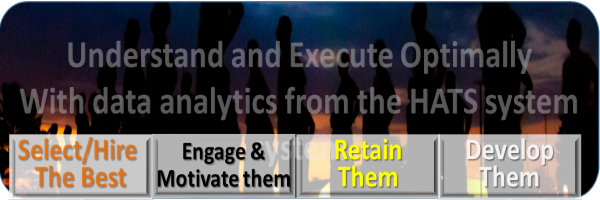Many organizations have failed to see the full promise of talent management systems and the two most common reasons are partial implementations and failing to integrate predictive behavioral information on each employee with their talent management processes and systems.
Talent Management systems have 4 principle functions including recruiting(which supports recruiting, hiring, selection and onboarding typically), performance management, learning management and compensation and benefits management. By integrating behavioral information including motivations, attitudes, natural tendencies, , task and work environment preferences and other pertinent data, you not only "inform" processes and decisions throughout the talent management cycle you enable optimization. That is, you provide the key data (that is not present in these systems) to make the optimal selection decisions, to optimally manage each employee, to select the best development path and provide information to the employee that will optimize their development experience and you can better make compensation decisions based on a knowledge of what really matters to them.
When adopting an organization wide assessment system, 5 key critical success factors include
- Ensuring the system provides validated job specific information.
- That the system is EEOC compliant and that the system does not cause any adverse impact.
- Ensuring your system collects the full range of data so it can be predictive
- User experience- ensuring the experience of collecting the data is favorable for the employee or candidate which includes not taking longer than 30 minutes to complete.
- Ensuring that the data can be used throughout the talent management cycle not just for selection but for culture fit, development , talent planning, coaching, performance management…




















 One of the most difficult challenges managers face is choosing the right people and understanding how to get them to perform at their best. During the last 12 years of our experience, we have found no other tool except the Harrison Assessment that enables this kind of capability with incredible accuracy and insight.
One of the most difficult challenges managers face is choosing the right people and understanding how to get them to perform at their best. During the last 12 years of our experience, we have found no other tool except the Harrison Assessment that enables this kind of capability with incredible accuracy and insight.















